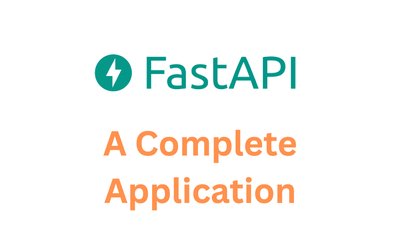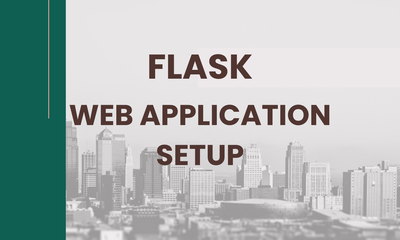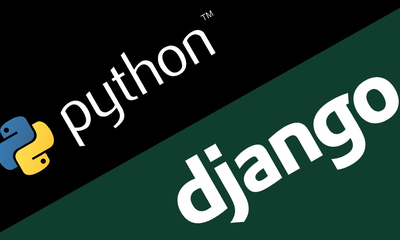Comparing FastAPI, Flask, and Django: Choosing the Right Python Web Framework for Your Project
By khoanc, at: May 4, 2023, 11:07 p.m.
Estimated Reading Time: __READING_TIME__ minutes
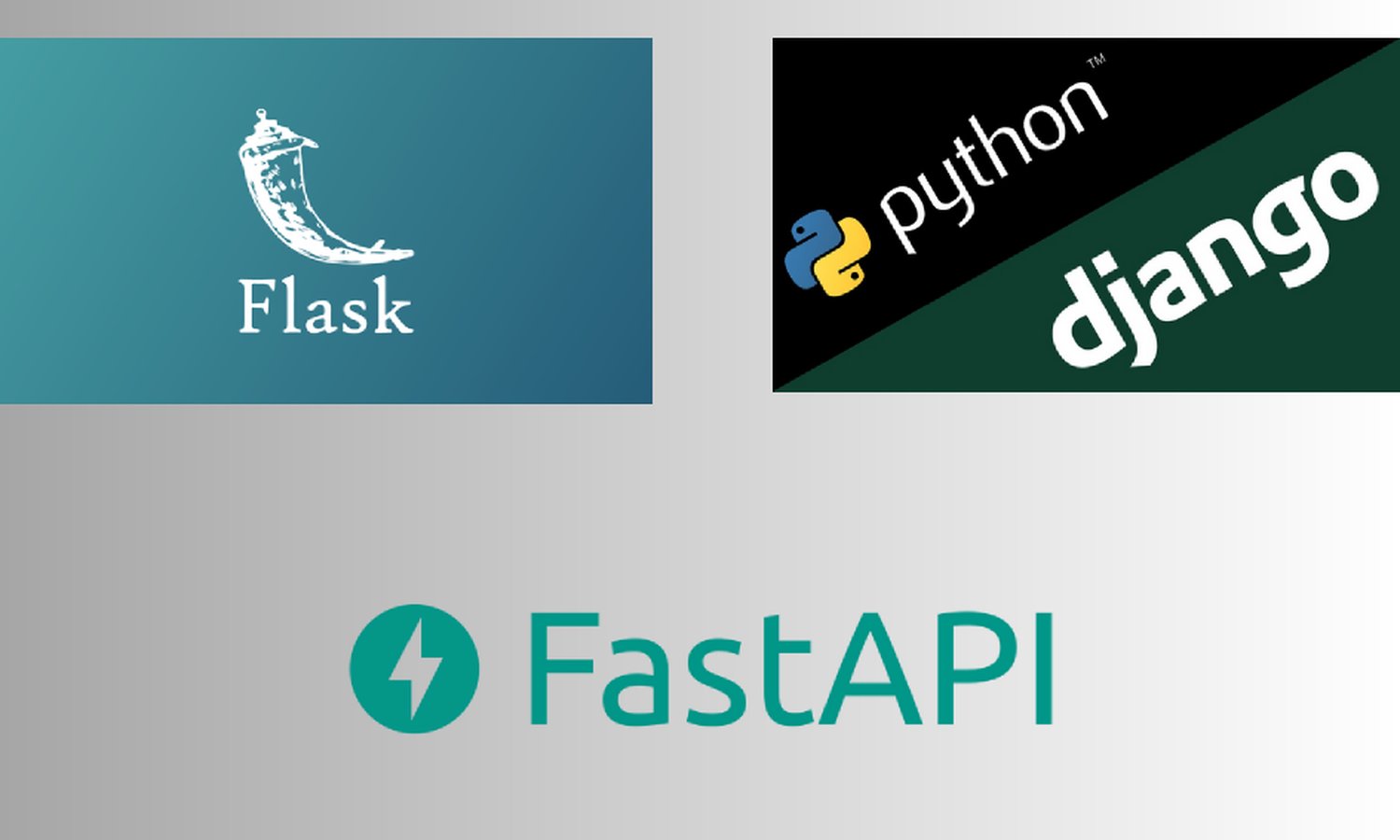
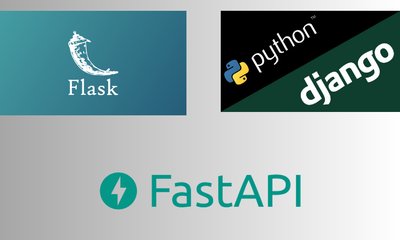
1. Introduction
In order to build a web application using Python, there are several frameworks to choose from, each with its own strengths and characteristics. In this article, we will compare three popular Python web frameworks: FastAPI, Flask, and Django. By understanding the features, benefits, and trade-offs of each framework, we can make an informed decision on which one suits our project requirements.
2. Overview of FastAPI
Features and Benefits
FastAPI is a modern, high-performance web framework that is well-known as its speed and simplicity. This framework is built on top of Starlette, an asynchronous web framework, and leverages Python's type annotations for automatic data validation and documentation generation.
FastAPI's main features include:
- High Performance: An exceptional speed and low overhead, thanks to its asynchronous capabilities and code generation using Pydantic models.
- Automatic Documentation: Interactive API documentation is generated automatically, with nice UI/UX. Hence, it would be easier to integrate with.
- Type Safety: Thanks to the Python's type hints, this framework provides automatic data validation, reducing the chances of runtime errors.
- WebSockets Support: FastAPI seamlessly integrates with WebSockets, allowing real-time bidirectional communication between the client and server.
- Easy Integration: FastAPI works well with existing Python libraries and frameworks, enabling smooth integration into your project's ecosystem.
Performance Advantages
Asynchronous design and code generation techniques contribute to its excellent performance. Therefore, this framework outperforms both Flask and Django in terms of request handling speed and throughput. The ability to handle high loads and scale efficiently makes FastAPI a preferred choice for performance-critical applications.
Use Cases
If we are looking for a high performance and scalable application, then FastAPI is the answer. For example:
- API Development: Automatic documentation generation and type safety make FastAPI an excellent choice for building robust and well-documented APIs.
- Real-time Applications: With its WebSockets support, FastAPI is well-suited for developing real-time applications like chat systems, collaboration tools, and live dashboards.
- Microservices: Lightweight nature and asynchronous capabilities make it suitable for building microservices that need to handle a large number of concurrent requests.
Overview of Flask
Features and Benefits
Flask is a lightweight and flexible web framework that follows a minimalist philosophy. It provides the essential tools needed for web development without imposing rigid structures. Some key features of Flask include:
- Simplicity: Easy to learn, easy to adapt and custom.
- Extensibility: Modular design and extensive ecosystem of extensions
- Flexibility: Easy customizable, flexiby design choices
- Minimal Overhead: Lightweight nature ensures a minimal resource consumption, hence, this is suitable for small to medium-sized projects.
- Widely Adopted: A large active community, results in a rich set of resources, tutorials, and community support
Lightweight Nature
Flask's minimalist approach makes it a lightweight framework with fewer dependencies compared to other frameworks like Django. Developers, as a result, have more control over the application structure and choose the libraries and tools they prefer.
Use Cases
Flask is well-suited for various web development scenarios, including:
- Rapid Prototyping: This is the best option for POC due to its simplicity philosophy
- Small to Medium-sized Projects: Its lightweight nature and flexibility make it ideal for small to medium-sized projects
- RESTful APIs: The minimalistic design and extensibility make it suitable for building RESTful APIs with custom requirements.
- Educational Projects: Its simplicity and comprehensive documentation make it a popular choice for educational purposes and beginner-friendly
projects.
Overview of Django
Features and Benefits
Django is a robust and full-featured web framework that follows the "batteries included" philosophy. A comprehensive set of tools and libraries out of the box is built-in, making it easy to develop complex web applications.
Some key features of Django include:
- ORM and Database Support: A powerful Object-Relational Mapping (ORM) layer helps developers to interact with databases using Python objects.
- Admin Interface: A built-in admin interface provides an easy-to-use administrative interface for managing application data.
- Security: Many security features such as protection against common web vulnerabilities, authentication, and authorization mechanisms.
- Scalability: High traffic + scalable applications can be handled easily with Django's design patterns and architectural decisions
- Community and Ecosystem: The large and active community, which means plenty of resources, libraries, and third-party packages available for development.
Robustness and Scalability
Django's batteries-included approach and convention-over-configuration philosophy make it an excellent choice for building robust and scalable web applications. Its built-in features for authentication, security, and database interaction simplify development and reduce boilerplate code.
Use Cases
Django is the best option for complex applications, including:
- Enterprise-level Applications: Large-scale enterprise applications are handled pretty well thanks to the Django robustness, scalability, and extensive feature set
- Content Management Systems (CMS): A built-in admin interface and content management capabilities are suitable to building CMS and publishing platforms.
- E-commerce Platforms: The security feature, ORM, and extensibility is a good fit for developing e-commerce platforms with complex data models and business logic.
Comparison of FastAPI, Flask, and Django
When choosing a web framework for your project, it's essential to consider various factors. Let's compare FastAPI, Flask, and Django across different aspects to help you make an informed decision:
| Aspect | FastAPI | Flask | Django |
|---|---|---|---|
| Performance | High-performance with asynchronous capabilities | Lightweight with moderate performance | Robust and scalable for large-scale applications |
| Development Speed | Rapid development with automatic documentation | Quick prototyping and simple application structure | Longer development time due to boilerplate and complexity |
| Scalability | Highly scalable and efficient for high loads | Suitable for small to medium-sized projects | Robust and scalable for large-scale applications |
| Learning Curve | Moderate learning curve due to advanced features | Easy to learn and get started with | Steeper learning curve due to complex architecture |
| Community Support | Growing community with a range of resources and tutorials | Active community with numerous third-party packages | Large and mature community with extensive resources |
| Extensions and Plugins | Limited number of available extensions and plugins | Abundant ecosystem of third-party extensions | Vast ecosystem of extensions and packages |
| Documentation | Well-documented with automatic API documentation | Comprehensive documentation and abundant learning resources | Extensive documentation and official tutorials |
| Database Support | Wide range of database support with integrated ORM | Supports multiple databases with the help of extensions | Powerful ORM with support for various databases |
| Testing and Debugging | Excellent testing support with built-in test client | Basic testing capabilities with various extensions | Comprehensive testing framework and debugging tools |
| Community Adoption | Gaining popularity with a growing user base | Widely adopted and widely used in the Python community | Established and widely used in the Python community |
| Project Size Suitability | Suitable for small to large-scale projects | Suitable for small to medium-sized projects | Suitable for medium to large-scale projects |
| Flexibility and Customization | Offers flexibility and customization options | Highly flexible and customizable | Offers flexibility within its established conventions |
| Pros | - Exceptional performance with high throughput - Automatic API documentation generation - Strong type safety and automatic data validation - Excellent support for asynchronous programming - Easy integration with other Python libraries and frameworks |
- Lightweight and easy to get started with - Flexible and customizable architecture - Extensive ecosystem of third-party extensions - Well-suited for small to medium-sized projects - Abundant learning resources and tutorials |
- Robust and comprehensive framework with "batteries included" - Built-in admin interface for easy management - Excellent security features and protection against common vulnerabilities - Ideal for large-scale and enterprise-level applications - Well-established and extensive community support |
| Cons | - Relatively new framework with a smaller community compared to Flask and Django - Limited number of available extensions and plugins - Steeper learning curve due to advanced features and concepts |
- Limited out-of-the-box features compared to Django - Less suitable for large-scale applications with high traffic - Requires manual configuration for complex functionality |
- Longer development time due to the included features and conventions - Complex architecture and extensive boilerplate code - Less flexibility compared to FastAPI and Flask |
-
Conclusion
In conclusion, choosing the right web framework depends on your project requirements, development speed, performance needs, and the level of community support you desire.
- Choose FastAPI if you prioritize high performance, automatic documentation, and asynchronous capabilities.
- Opt for Flask if you value simplicity, flexibility, and a lightweight framework that allows for quick prototyping.
- Consider Django if you require a robust, full-featured framework with a comprehensive set of tools, ideal for large-scale and enterprise-level applications.
Evaluate your project's needs and priorities, and select the framework that aligns best with your goals and development style.
Remember, each framework has its strengths and trade-offs, so consider the specific requirements of your project before making a decision.
References
- https://fastapi.tiangolo.com/
- https://flask.palletsprojects.com/en/2.3.x/
- https://www.djangoproject.com/
- https://www.section.io/engineering-education/choosing-between-django-flask-and-fastapi/
- https://dev.to/kateryna_pakhomova/django-vs-flask-vs-fastapi-for-software-founders-45k4
- https://analyticsindiamag.com/django-vs-flask-vs-fastapi-a-comparative-guide-to-python-web-frameworks/

